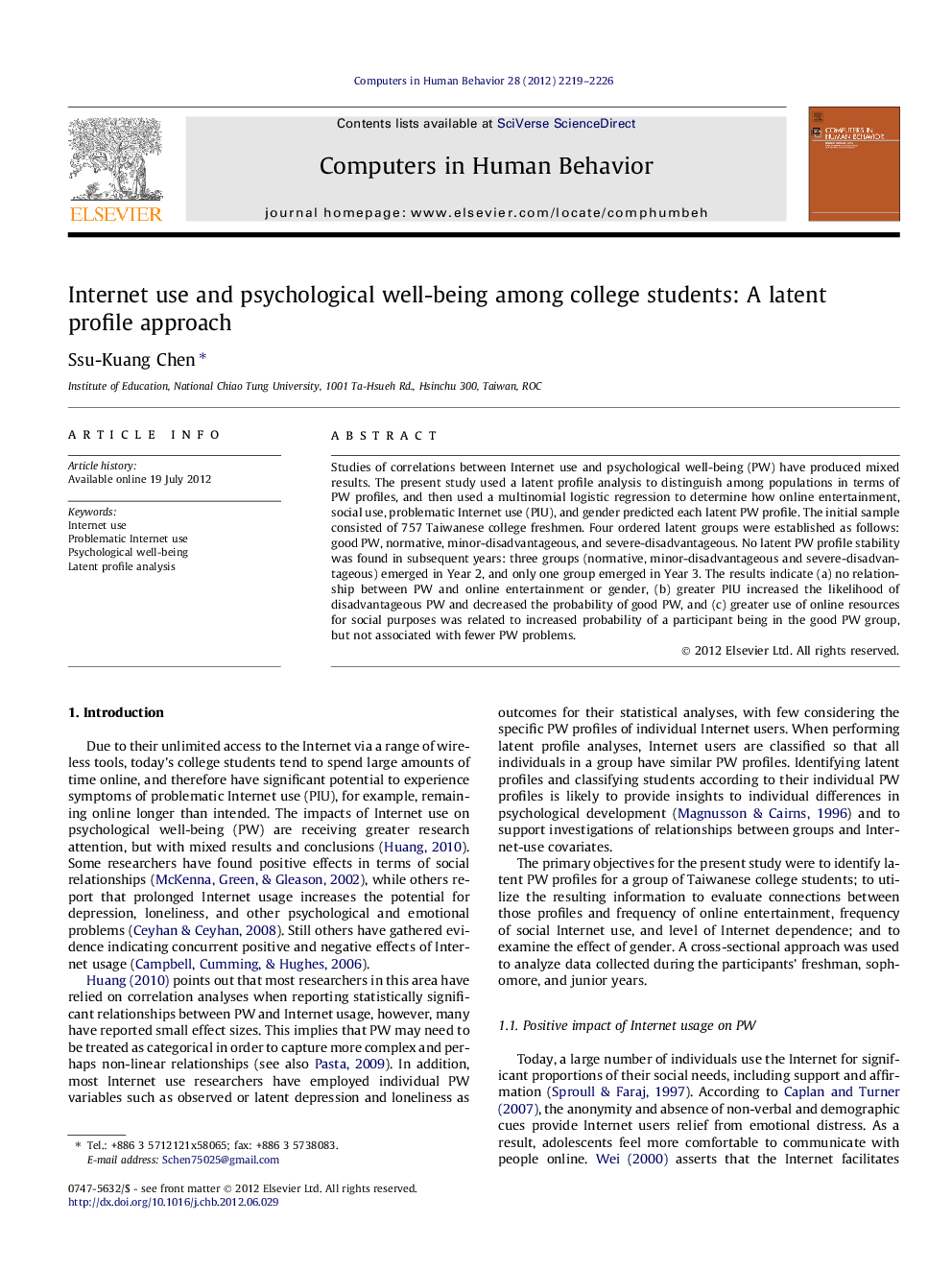| Article ID | Journal | Published Year | Pages | File Type |
|---|---|---|---|---|
| 351309 | Computers in Human Behavior | 2012 | 8 Pages |
Studies of correlations between Internet use and psychological well-being (PW) have produced mixed results. The present study used a latent profile analysis to distinguish among populations in terms of PW profiles, and then used a multinomial logistic regression to determine how online entertainment, social use, problematic Internet use (PIU), and gender predicted each latent PW profile. The initial sample consisted of 757 Taiwanese college freshmen. Four ordered latent groups were established as follows: good PW, normative, minor-disadvantageous, and severe-disadvantageous. No latent PW profile stability was found in subsequent years: three groups (normative, minor-disadvantageous and severe-disadvantageous) emerged in Year 2, and only one group emerged in Year 3. The results indicate (a) no relationship between PW and online entertainment or gender, (b) greater PIU increased the likelihood of disadvantageous PW and decreased the probability of good PW, and (c) greater use of online resources for social purposes was related to increased probability of a participant being in the good PW group, but not associated with fewer PW problems.
► Four psychological well-being (PW) latent groups were established for freshmen. ► Three groups emerged in Year 2, and only one group in Year 3. ► There is no relationship between online PW and entertainment or gender. ► Greater problematic Internet use increased the likelihood of disadvantageous PW. ► Greater online social use increased probability of being in the good PW group.
